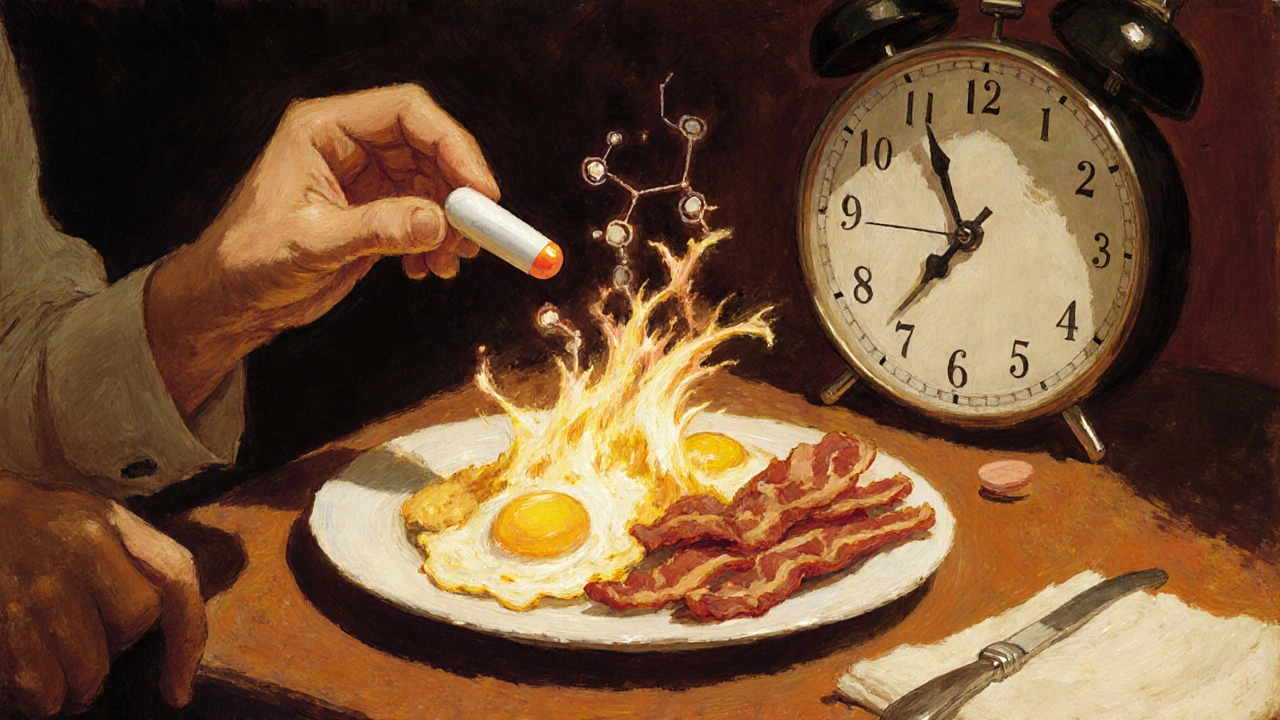Protein and Medication Interaction: What You Need to Know
When you take a medication, your body doesn’t just see a pill—it sees a chemical that has to be absorbed, processed, and cleared. And if you’re eating a lot of protein, a macronutrient essential for muscle repair, enzyme production, and immune function. Also known as dietary protein, it can change how your body handles drugs. This isn’t just about bodybuilders or athletes. Even if you’re taking a daily pill for blood pressure, diabetes, or depression, the amount of protein in your meals can make that pill work better, worse, or even cause side effects you didn’t expect.
Some drugs, like levodopa, a medication used for Parkinson’s disease that competes with amino acids for absorption in the gut., are directly blocked by high-protein meals. If you eat a steak right before taking it, your body might not absorb enough to control tremors. On the flip side, thyroid hormone replacement, a common treatment for underactive thyroid. can be less effective if taken with high-protein or soy-based foods because protein binds to the hormone and slows its uptake. Even antibiotics, like tetracycline or ciprofloxacin, which are often taken on an empty stomach. can be weakened by dairy or protein shakes—calcium and amino acids in them grab onto the drug and stop it from working. You don’t need to avoid protein entirely, but timing matters. Take your meds at least 2 hours before or after a high-protein meal. Simple, but life-changing for some.
It’s not just about food. People taking protein supplements, like whey or casein powders, often used for fitness or aging. are at risk too. These aren’t harmless snacks—they’re concentrated sources of amino acids that can interfere with how your liver processes drugs. For example, if you’re on blood thinners or antidepressants, your liver enzymes might get overloaded trying to handle both the supplement and the medication. That’s when side effects like dizziness, nausea, or even bleeding risks show up. And it’s not always obvious. You might not feel anything until a routine blood test shows your drug levels are too high—or too low.
That’s why knowing your meds and your protein intake isn’t just smart—it’s necessary. The posts below cover real cases: how protein and medication interaction affects people on immunosuppressants, thyroid meds, antidepressants, and even cancer treatments. You’ll find clear advice on when to eat, what to avoid, and how to talk to your pharmacist about your supplements. No guesswork. No fluff. Just what actually works.

Protein-Rich Foods and Medications: How Diet Affects Drug Absorption and Effectiveness
Protein-rich foods can reduce medication absorption by up to 50%, especially for drugs like levodopa. Learn how to time meals and meds for maximum effectiveness without sacrificing nutrition.
Read more